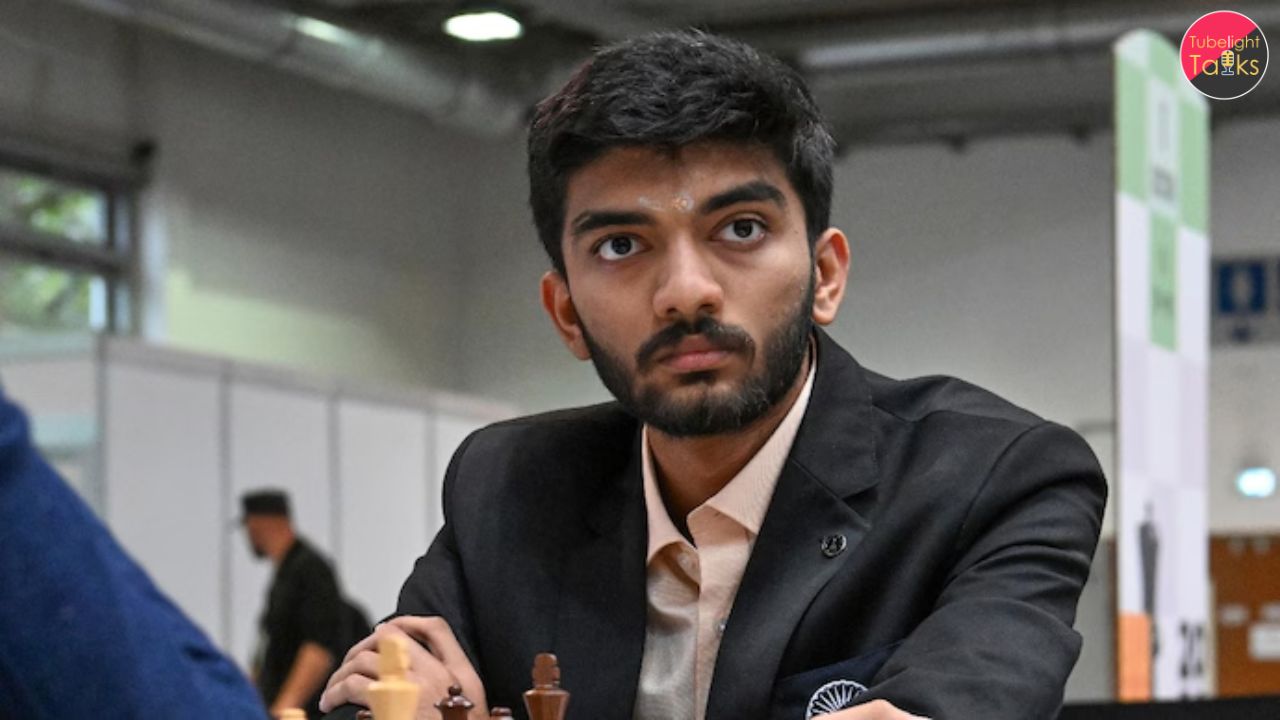From Chaturanga to D Gukesh: Why North India Still Trails in the Game It Gifted the World
Chess, India’s gift to the world, originated as Chaturanga during the Gupta Empire. However, the modern heartbeat of Indian chess now beats in the South. From Viswanathan Anand to R Praggnanandhaa, Vaishali, and D Gukesh, Southern India has emerged as the epicenter of Indian chess excellence.
D Gukesh’s Rise: A Moment That Shook the Chess World
Chess was born in India but is now largely nurtured in Southern states like Tamil Nadu
D Gukesh’s historic win over Fabiano Caruana proves Indian potential on the world stage
North India lags due to poor infrastructure, lack of training, and cultural neglect.
In 2024, 17-year-old Grandmaster D Gukesh from Chennai achieved a landmark victory by defeating World No. 2 Fabiano Caruana in the FIDE Candidates Tournament. This victory made him the youngest player ever to qualify for a World Chess Championship final, breaking Magnus Carlsen’s long-held record.
Gukesh’s focus, humility, and calm demeanor on and off the board stunned the world. He became a symbol of modern Indian chess potential.
The Stark North-South Divide in Indian Chess
Then and Now
Then: Chess was a royal and respected mental game, played in the courts of kings and strategists across India.
Now: While South India produces international grandmasters and Olympic-level teams, North India struggles to develop consistent talent and infrastructure.
North vs South
South India – The Grandmaster’s Cradle
Tamil Nadu alone has produced over 30 Grandmasters
State governments promote chess through school curricula and training academies
A strong chess community culture exists
Players like Gukesh, R Praggnanandhaa, and Vaishali are products of this thriving system
North India – The Missed Opportunity
Grandmasters are few and scattered
Parents and educators often dismiss chess as a hobby
Inconsistent funding, lack of serious coaching, and absence of chess-in-schools initiatives
A report by TOI quoted a coach saying “We trained like thugs, not thinkers”
Why is North India Lagging Behind
It’s Key Challenges:
- Weak ecosystem with fewer academies and limited state support
- Cultural bias where chess is not seen as a career
- Frequent coach changes unlike the long-term mentoring seen in the South
- Lack of media visibility and tournament opportunities
- Pressure to choose mainstream careers over intellectual pursuits
Is Diet a Factor in This Divide
Although nutrition affects brain performance, there is no proof that South Indian food gives a cognitive advantage. However, lifestyle differences matter.
Southern families often follow disciplined routines including early rising, satvik food, and balanced screen time
Northern youth, especially in small towns, are often encouraged to pursue cricket or engineering
The difference lies in structure and mindset, not meals
What the Experts Say
Bharat Singh Chauhan, President of Delhi Chess Association, said
“In North India, you say you play chess and people ask, “what else do you do”?
Vantika Agrawal, Woman Grandmaster from Noida, said
“In many parts of the North, chess is still seen as a casual hobby”.
Gaurav Gaur, a chess coach from North India, said “There’s no strategic training. It’s more like mental muscle-drill than talent development”.
North India’s Silent Talent
Despite obstacles, North India has promising players:
1. Sankalp Gupta from Nagpur became a Grandmaster at 18
2. Abhimanyu Puranik from Maharashtra is a rising international player
3. Raunak Sadhwani, also from Nagpur, is dynamic and talented
4. Vantika Agrawal is a rising icon in women’s chess But unlike Southern stars, they lack steady support and visibility
How Can a North Indian Become the Next D Gukesh
- Start young, ideally before age 10, and continue long-term
- Train under experienced coaches rather than hopping between mentors
- Participate in tournaments, both school-level and FIDE-rated
- Study games of legends like Anand, Fischer, and Gukesh
- Maintain mental discipline through meditation and a structured routine
- Treat chess as a full career, not a secondary skill
- Adopt spiritual strength to handle pressure, defeat, and ego
The Chessboard of Life: Insights from Sant Rampal Ji Maharaj
Chess is more than a game. It is a reflection of life. Sant Rampal Ji Maharaj Ji teaches “In life’s game, the soul must find its way to salvation, not just temporary victories” His guidance emphasizes Patience like the pawn advancing one step at a time
Humility like sacrificing the queen to achieve checkmate
True knowledge that prioritizes the eternal over the temporary
Just as chess demands planning and focus, true success in life requires spiritual balance, which is only possible through correct worship of Supreme God Kabir Sahib Ji as shown by Sant Rampal Ji Maharaj Ji.
FAQs: Can North India Produce the Next D Gukesh
Q1. Why is chess more popular in Southern India?
Because of state support, school programs, stable coaching, and cultural appreciation of mental sports
Q2. Who is D Gukesh and whom did he defeat?
D Gukesh is a Grandmaster from Chennai. In 2024, he defeated World No. 2 Fabiano Caruana to qualify for the World Chess Championship
Q3. Can a student from North India become a Grandmaster?
Yes. With early training, dedication, and the right guidance, anyone can achieve Grandmaster status
Q4. How does Sant Rampal Ji Maharaj’s guidance help chess players?
His teachings promote calmness, clarity, discipline, and detachment from ego.
Q5. What steps should North India take to catch up in chess
Build a stronger chess ecosystem, invest in long-term coaching, add chess to school programs, and promote it as a career option backed.











Discussion (0)